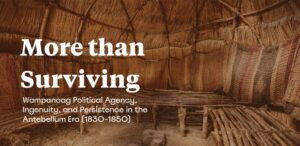Hello potential teammates,
Below is an overview of my general skill set in the suggested categories. Most of my skills have been honed over many years working in design and marketing — both inhouse and for agencies. I started as a graphic designer but along the way shifted into a strategy/design hybrid. I love developing concepts and bringing them to life and that has put me in the position of creating brands and campaigns from the ground up for both non- and for- profit clients.
Project manager
My most recent roles as Design Director and Creative Director at communication and design agencies required that I effectively perform project management duties. I like to have a clear roadmap, open communication, and easy to access tools. Reviewing progress, next steps, and leaving space for investigation are important to me—when folks feel well oriented they can worry less about falling behind or feeling lost and more about creativity, exploration, and progress.
Developer
I have basic HTML skills. I have worked with wysiwg and feel confident in this area (ie. Squarespace, Wix, MailChimp etc.) I specifically am hoping to improve my developing skills this semester and beyond.
Design/UX
My degree is in communication design, and I have expert level experience with the Adobe Creative Suite and some video editing experience. Past projects have included print, brand development, digital (web and social), and video. I also have extensive experience in strategy—brand, campaign, and content. Having worked on several public facing campaigns and branding projects, user experience is a bit of a fixation for me. Making sure users who interact with the project (back end and front end) feel oriented and capable of successfully navigating the experience makes or breaks the final product.
Outreach/social media
My experience with marketing has required the ability to extend brand and campaign strategy to cohesive social content that take into account audience, platform, and messaging. In the past I’ve helped both clients and employers grow their audiences and put in place content strategy frameworks.
Documentation
I have performed copywriter duties in my past roles. Past work has included writing blog posts, pitches, brand books and messaging, scripts, and social media captions. This is an area I feel comfortable in, both as a writer and editor.
Research
This is another area I would like to beef up. Although I pride myself on doing desktop research and my tremendous curiosity—there are types of scholarly research that I would like to dig into more (archives). I do have experience with focus groups—in person and online.



